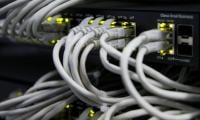KARACHI: International Diabetes Federation (IDF) has urged authorities in Pakistan to double the taxes on Sugar-Sweetened Beverages (SSBs) in forthcoming budget to reduce the burden of diabetes on individuals and families affected by diabetes and to do more to prevent diabetes in the population.
“We would recommend serious consideration be given to increased taxation on sugar-sweetened beverages (SSBs). We support the request of the Diabetic Association of Pakistan to increase excise duty on SSBs to 20% and to broaden the category beyond its current definition to include juices, energy drinks, flavoured milk, iced tea and other drinks sweetened with added sugars”, IDF President Prof. Andrew Boulton and President-elect Prof. Akhtar Hussain said in a joint letter to government of Pakistan.
In their recent letter to FBR chairman, whose copy is available with The News, the IDF office-bearers expressed their concern about the high number of people living with diabetes in Pakistan (currently estimated to be 19.4 million, saying this is thought to be a conservative estimate) and the many more at high risk of developing diabetes.
“Over the past year, the COVID-19 pandemic has hospitalised and claimed the lives of people living with diabetes disproportionately, underscoring the elevated risk from infectious diseases to people living with the condition”, they said and added that taxation to reduce the consumption of SSBs has proved a highly effective tool to reduce the burden of obesity and type 2 diabetes.
Increases in taxes on SSBs would be highly effective in countries like Pakistan where more than a third of adults are either obese or overweight in Pakistan and therefore at increased risk of diabetes and other health problems, they added.
Prof. Boulton and Prof. Hussain in their joint letter said they want to encourage the government of Pakistan to take action to tackle diabetes in the country through measures designed specifically to reduce the burden of diabetes on individuals and families affected by diabetes and to do more to prevent diabetes in the population.
“We are cognisant that, on the 31st of May, the FBR will submit its proposals to the Ministry of Finance for the forthcoming budget. We would like to propose the government give serious consideration to fiscal policies (including raising taxes on SSBs) that can help reduce the consumption of goods detrimental to health and encourage citizens to make healthier choices”, they added.
They said to o date, around 50 countries have introduced such measures, including examples in South-East Asia the IDF Middle East and North African Region (India, Maldives, Bahrain, Oman, Saudi Arabia and United Arab Emirates and Qatar). In every region, diabetes is spiraling out of control and has become a global health emergency.
“Diabetes presents a significant threat to economic advancement, particularly in low and middle-income countries, where more than three in four of all people with diabetes now live. Almost two-thirds (63%) of people with diabetes are of working age. The life-changing complications of diabetes place a heavy burden on individuals, families and economies”, they highlighted.
Consistently high blood-glucose levels can lead to serious diseases affecting the heart and blood vessels, eyes, kidneys, nerves and teeth. Diabetes is a leading cause of cardiovascular disease, blindness, kidney failure, and lower-limb amputation, they added.
They said IDF strongly recommends considering the taxation of SSBs to support heathier habits that will be of financial benefit to individuals, in terms of reducing expenditure on products detrimental to their health and beneficial to societies in terms of savings from reduced healthcare costs and lost productivity.
“A recent study of the consumption trends for SSBs in Pakistan (Datta and Husain, 2020) shows that carbonated beverages have become an integral part of the Pakistani diet, with SSBs constituting as much as 70% of non-alcoholic beverages consumed. This is true at both ends of the income spectrum: for wealthier households SSBs have, seemingly, become a must-have consumable, while in poorer households an increasing amount of expendable income is spent on carbonated beverages – income that could be better spent on consumables more beneficial to family wellbeing”, they further said.
Similarly, increased tax revenues can, of course, serve to provide additional revenue for investment in encouraging healthy habits by incentivising the consumption of products that promote health and supporting action to encourage increased physical activity.
“We sincerely hope you will give serious consideration to our request to take action to prevent diabetes by responding positively to the proposal of the Diabetic Association of Pakistan to increase excise duty on a wide range of sugar sweetened beverages”, they added.
ICSID Tribunal decides to proceed with adjudication on quantum of amounts owed to Bayindir by Pakistan
Establishment Division issues official notification of orders
Food Department of Azad Kashmir expressed fear of public protest over poor quality of flour
Four-week domain-specific programme will start from November 25 at the National Police Academy, Islamabad
Pakistan is ready to collaborate with private sector and international partners to develop carbon markets, says Romina
Data shows that electricity purchases by country’s power distribution companies dropped by 10.85%







